Last Updated: 8/25/2025
Article Credit: ShootTheCore, rtw, buffi, Arcade Otaku Wiki, Alamone, System11, DragonMinded, Mike J Moffat
Overview
The Cave CV1000 PCB has three major revisions: Early CV1000B, Later CV1000-B and CV1000-D.
- Early CV1000-B
- Gold plated JAMMA connector
- 9 Pin connection header mounted on the right side with some boards.
It is unused with the released games but theoretically could have been used to link two boards together via serial communication since the connector is identical to the serial connector on PC motherboards. - P2 connection pin header in the center of the board populated.
- Later CV1000-B
- Tin plated JAMMA connector
- 9 Pin connection header and P2 connection header unpopulated.
- CV1000-D
- Tin plated JAMMA Connector
- Battery for the real-time clock removed
- SDRAM doubled from 64Mb to 128Mb
The battery in the upper-right corner of the CV1000-B PCB is used to maintain a real-time clock in later games such as Ibara and Pink Sweets. Ibara also displays a clock in one level of the game that matches the board’s clock setting. High scores and game settings are stored in the RTC’s EPROM.
CV1000-D removed the battery – high scores and game settings are stored in NAND instead of EPROM with games running on that hardware.
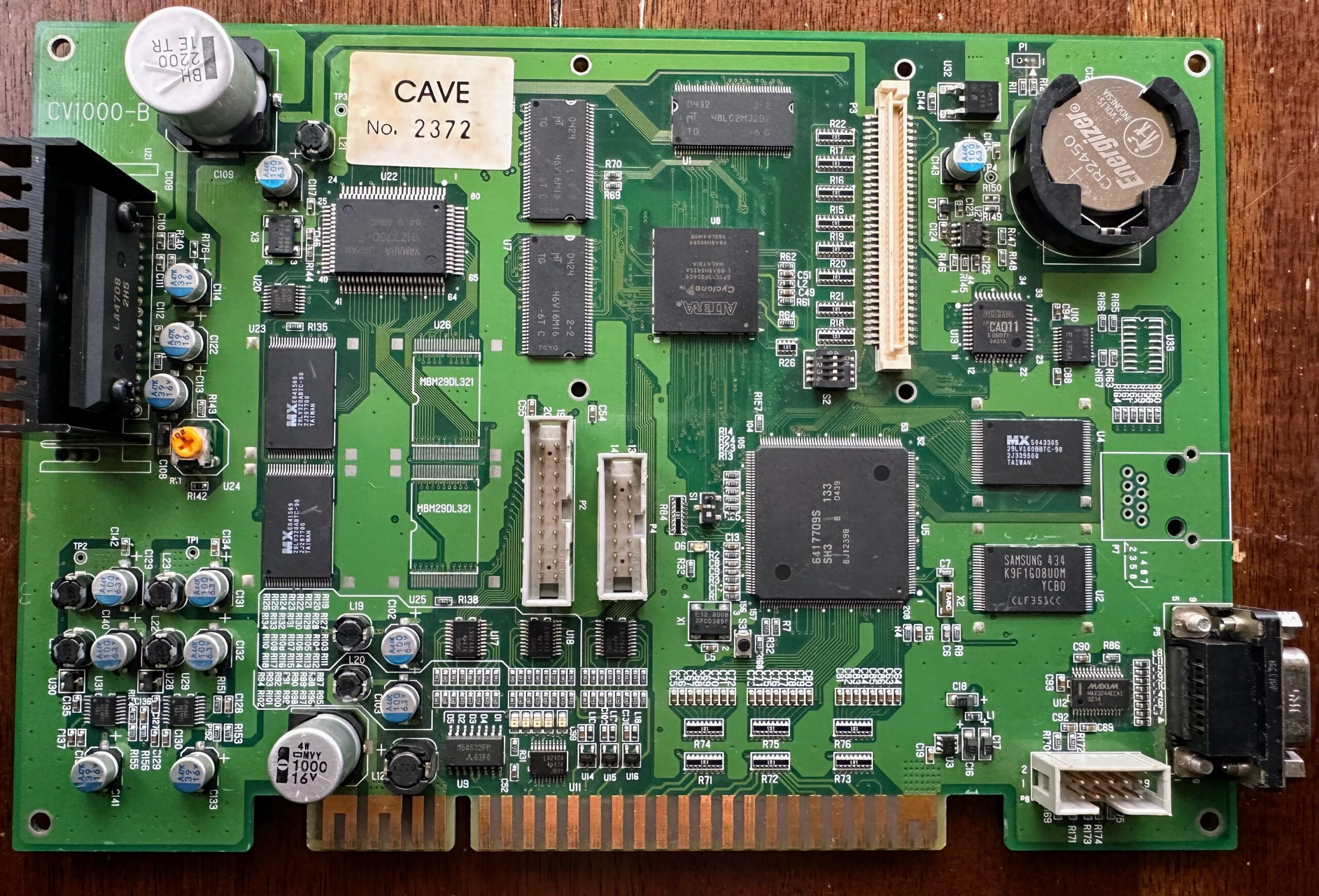
Photo Credit: ShootTheCore

Photo Credit: ShootTheCore
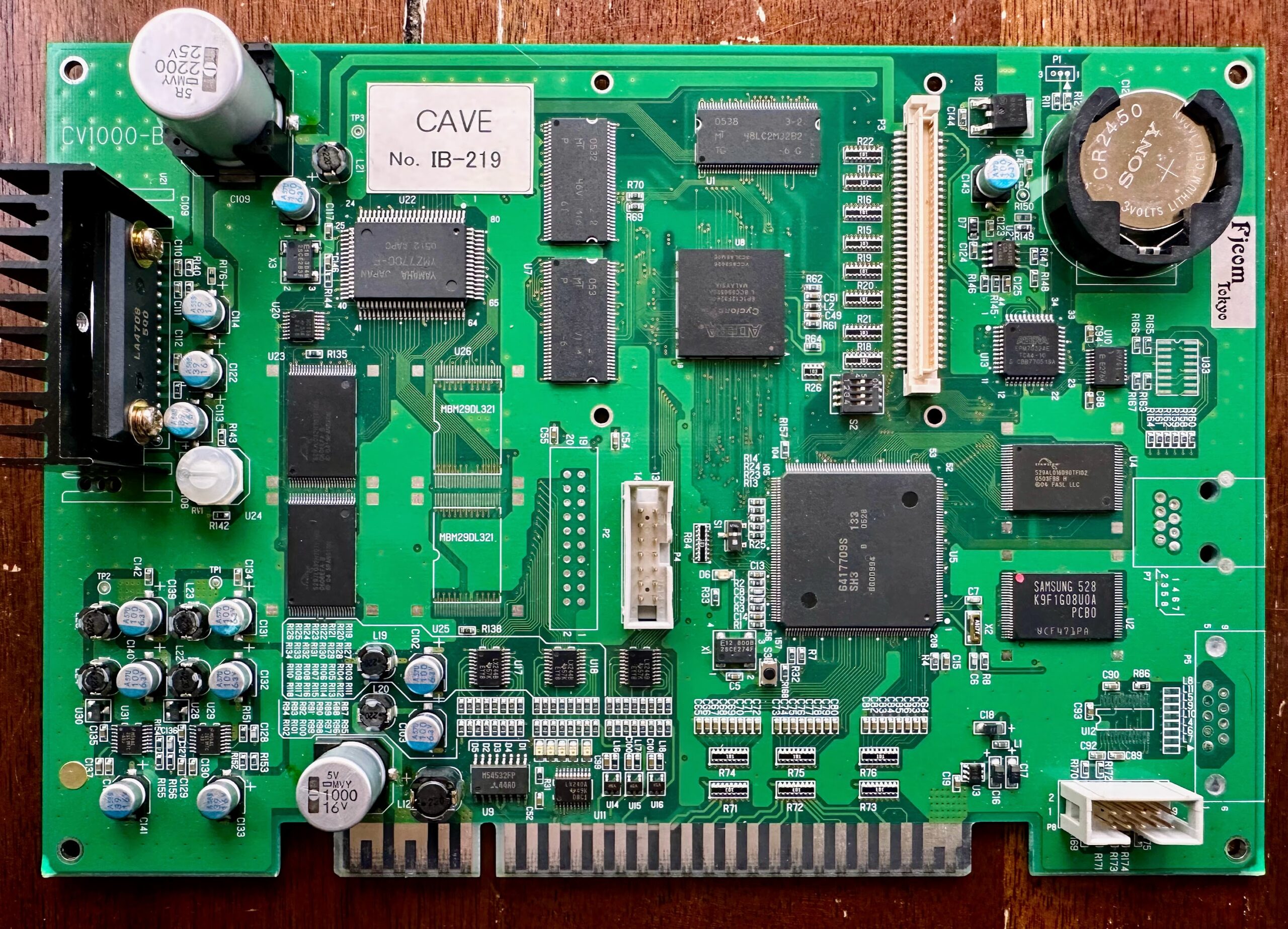
Photo Credit: ShootTheCore
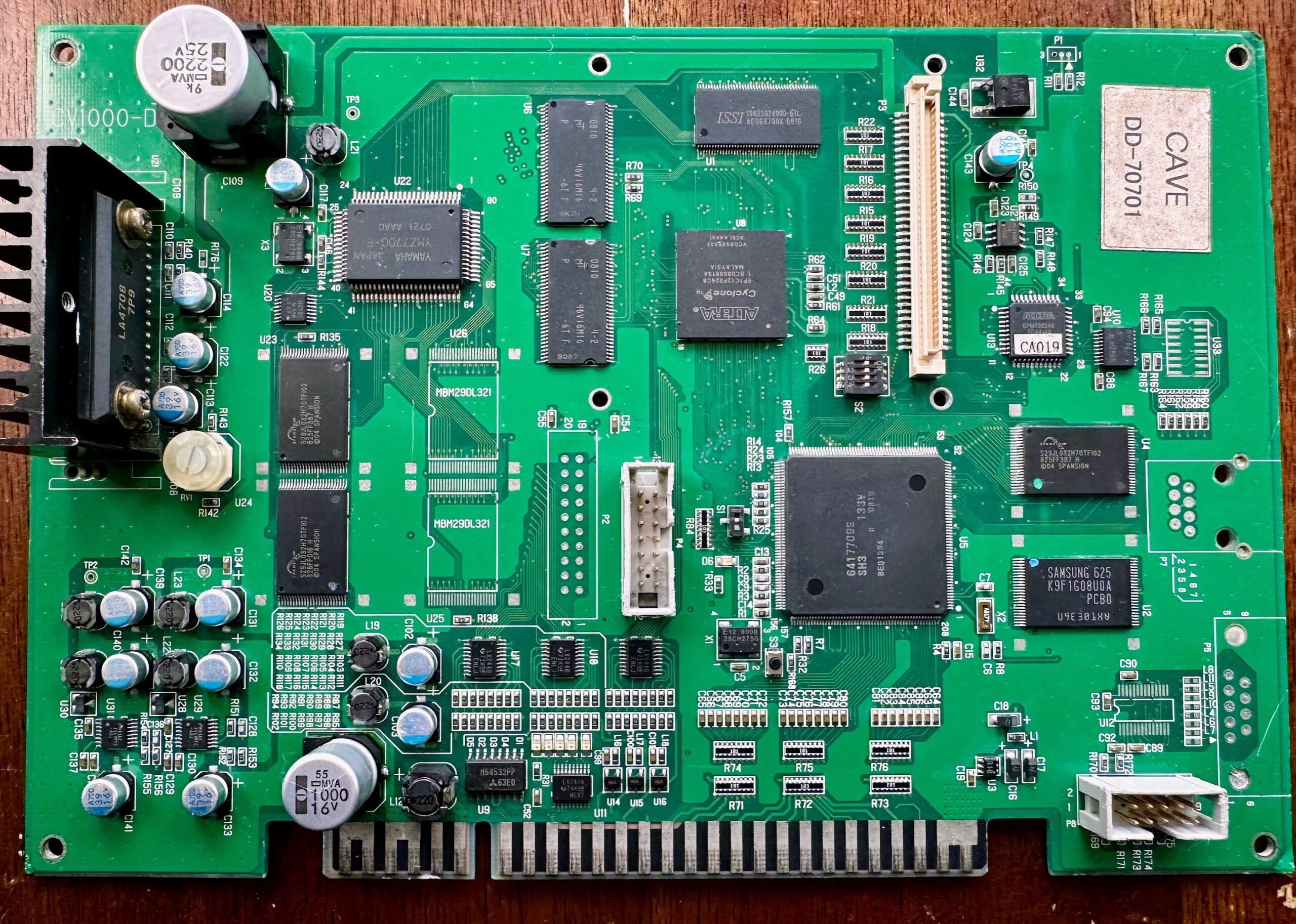
Photo Credit: ShootTheCore
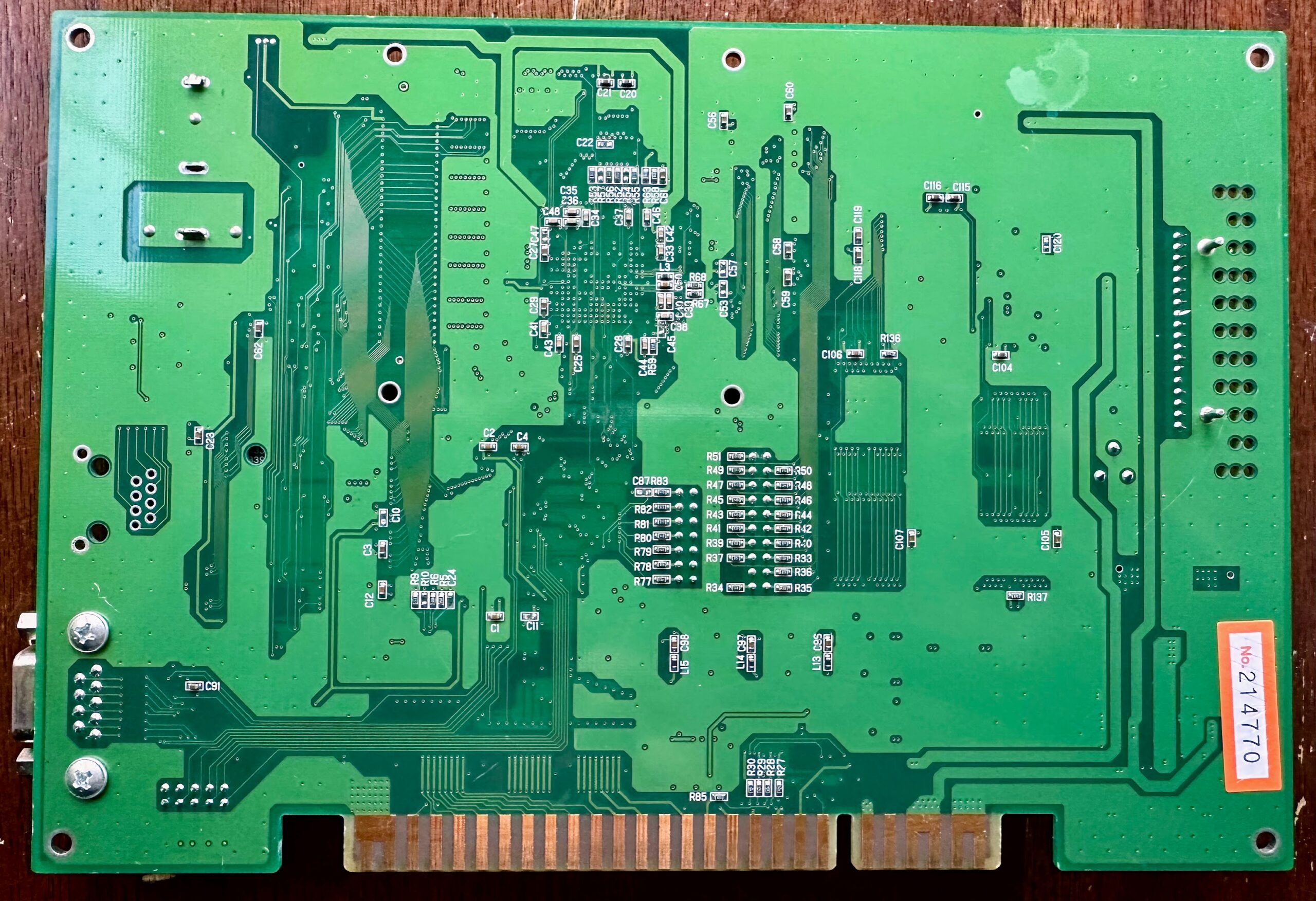
Photo Credit: ShootTheCore
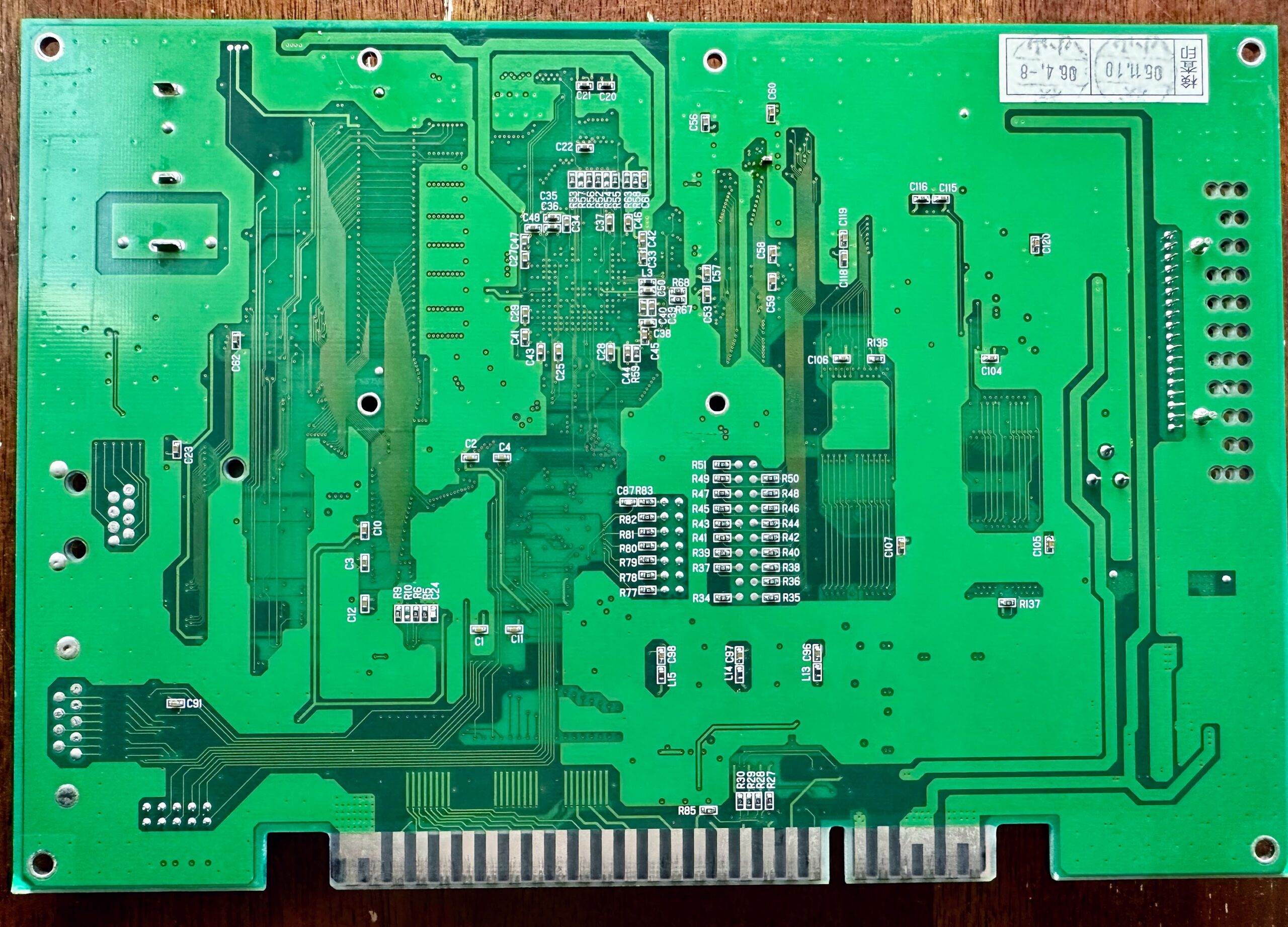
Photo Credit: ShootTheCore
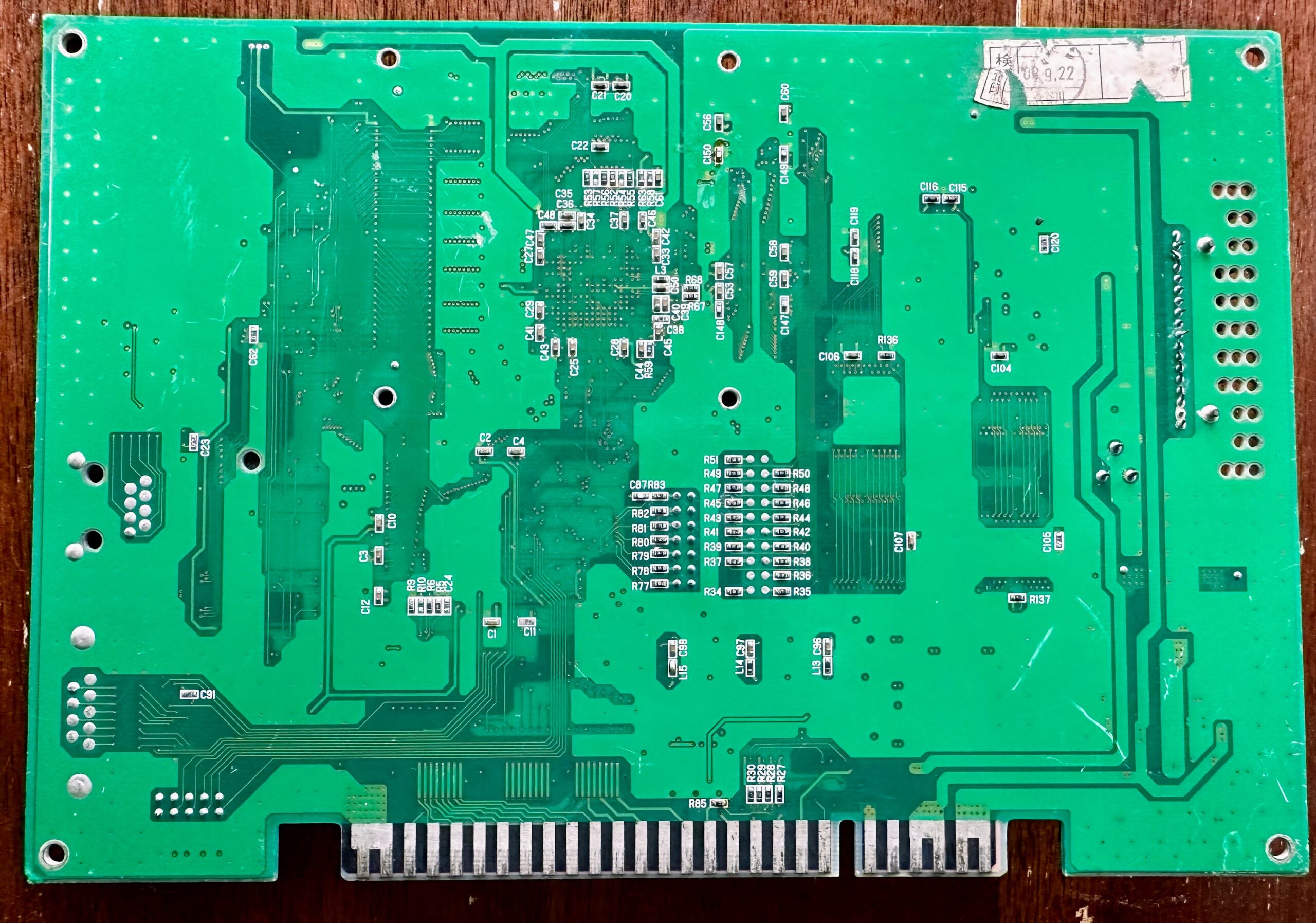
Photo Credit: ShootTheCore
Notable ICs
| IC | Function | Silkscreen Label |
| Hitachi SH3 | Main CPU | U5 |
| Yamaha YMZ770 | Audio | U22 |
| Altera Cyclone EP1C12F324C8 | Graphics Rendering | U8 |
| Altera CA011 | CPLD used for address decoding of the U2 flash, YMZ770 audio and RTC 9701. | U13 |
| RTC 9701 (CV1000-B) | Real-Time Clock with embedded EPROM for saving board settings and high scores | U10 |
| AD8061 | Color amplifier for the Red, Green and Blue output | U14, U15, U16 |
Board Variants
Reproductions of both CV1000-B and CV1000-D boards from Chinese sellers began surfacing in early 2024. These reproduction boards can be distinguished from Cave originals with the following characteristics:
- The JAMMA connector is gold plated. Although early CV1000-B boards (Mushihimesama) also had gold plating on the JAMMA connector, all original CV1000-D boards had tin plating.
- Via “pinholes” are not visible on the back of the reproduced board.
- A Cave serial number sticker is not present.
- Some of the reproduction boards do not have the P4 header in the center of the board populated.
At this time, it is believed that the reproduction boards run the games identically to the Cave original hardware. The major IC parts (CPU, Graphics FPGA, Audio, etc) are the same. The build quality seems to be inconsistent though – many of the repro boards have already needed repairs even though at the time of this writing they are less than one year old.
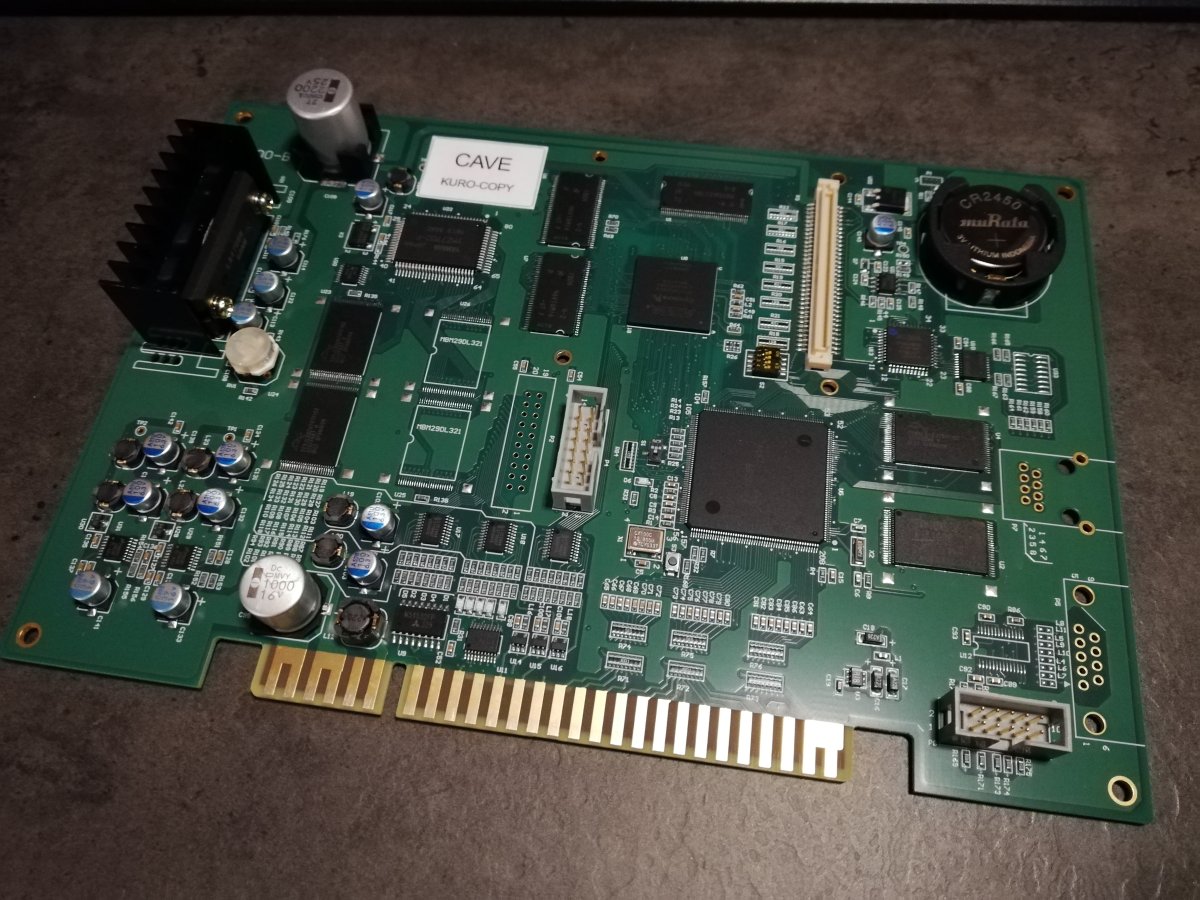
Photo Credit: Monouchi
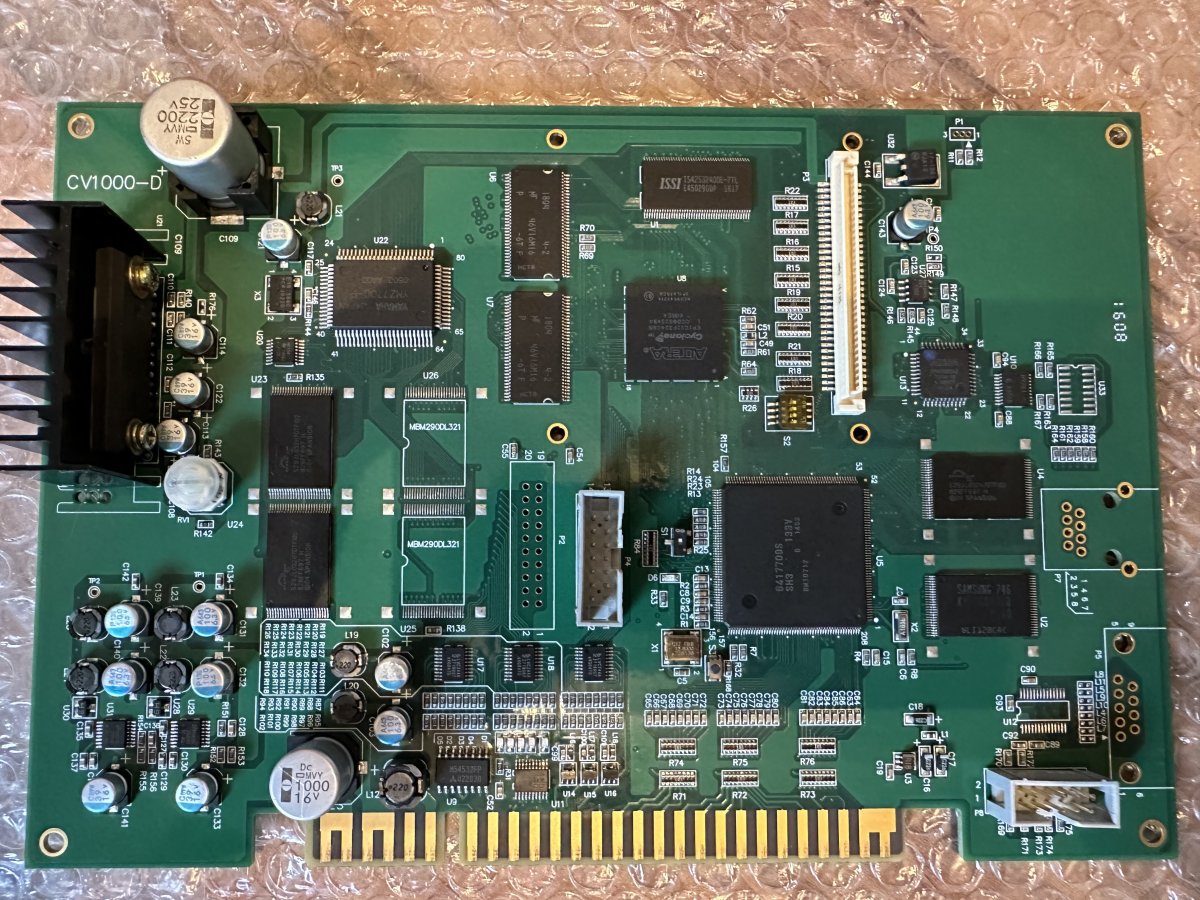
Photo Credit: dexa
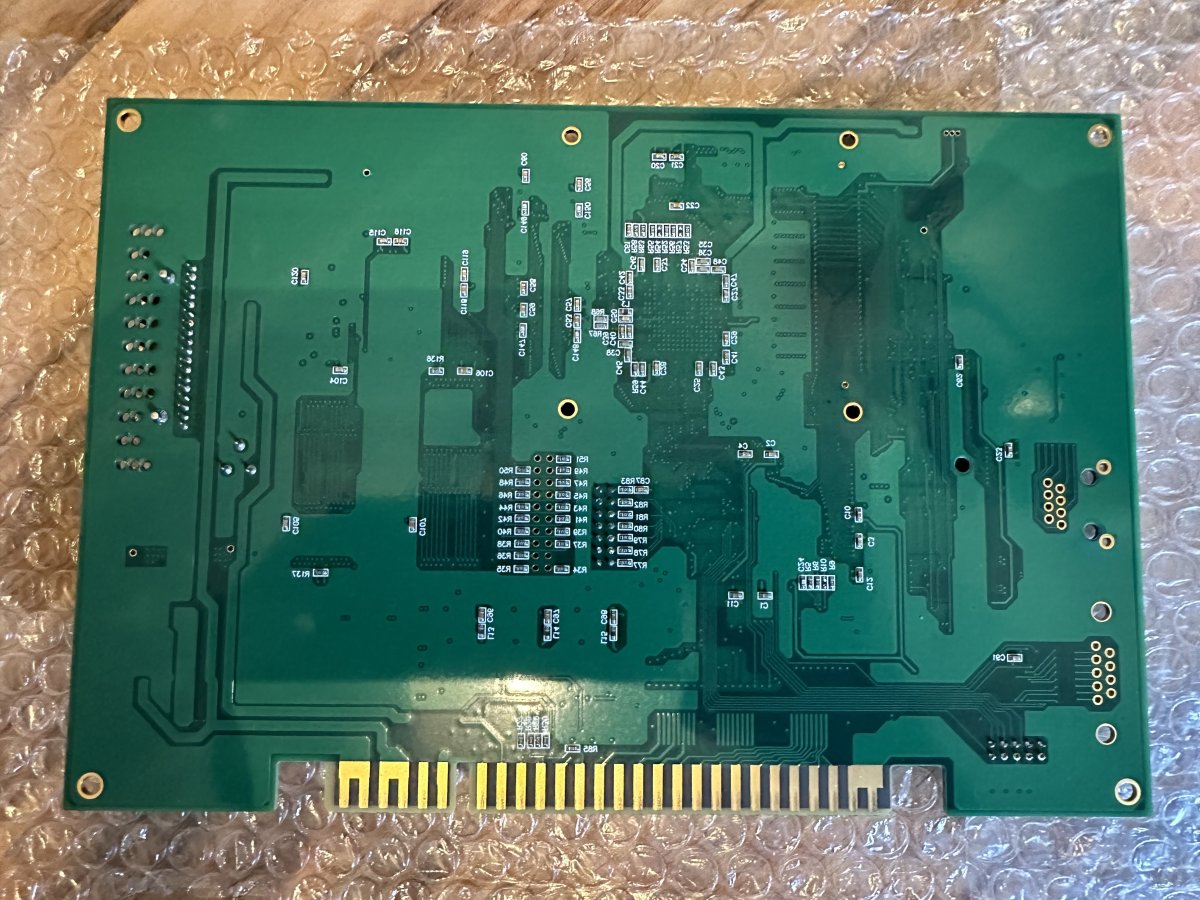
Photo Credit: dexa
Board Re-initialization (credit: MAME)
Some games (such as Mushihimesama and Espgaluda II) do not have a high score reset function. Any CV1000 can be reinitialized to the factory default high score and board settings with the following procedure:
- During boot, hold P1 Right+A+B+C and P2 Left+A+B+C until the startup checks are complete.
Common Issues and Quirks
CV1000 boards draw less power than your average PCB. Be sure to adjust your arcade PSU down when swapping in one of these boards so you don’t inadvertently over-volt the board!
Leaking Large Capacitor
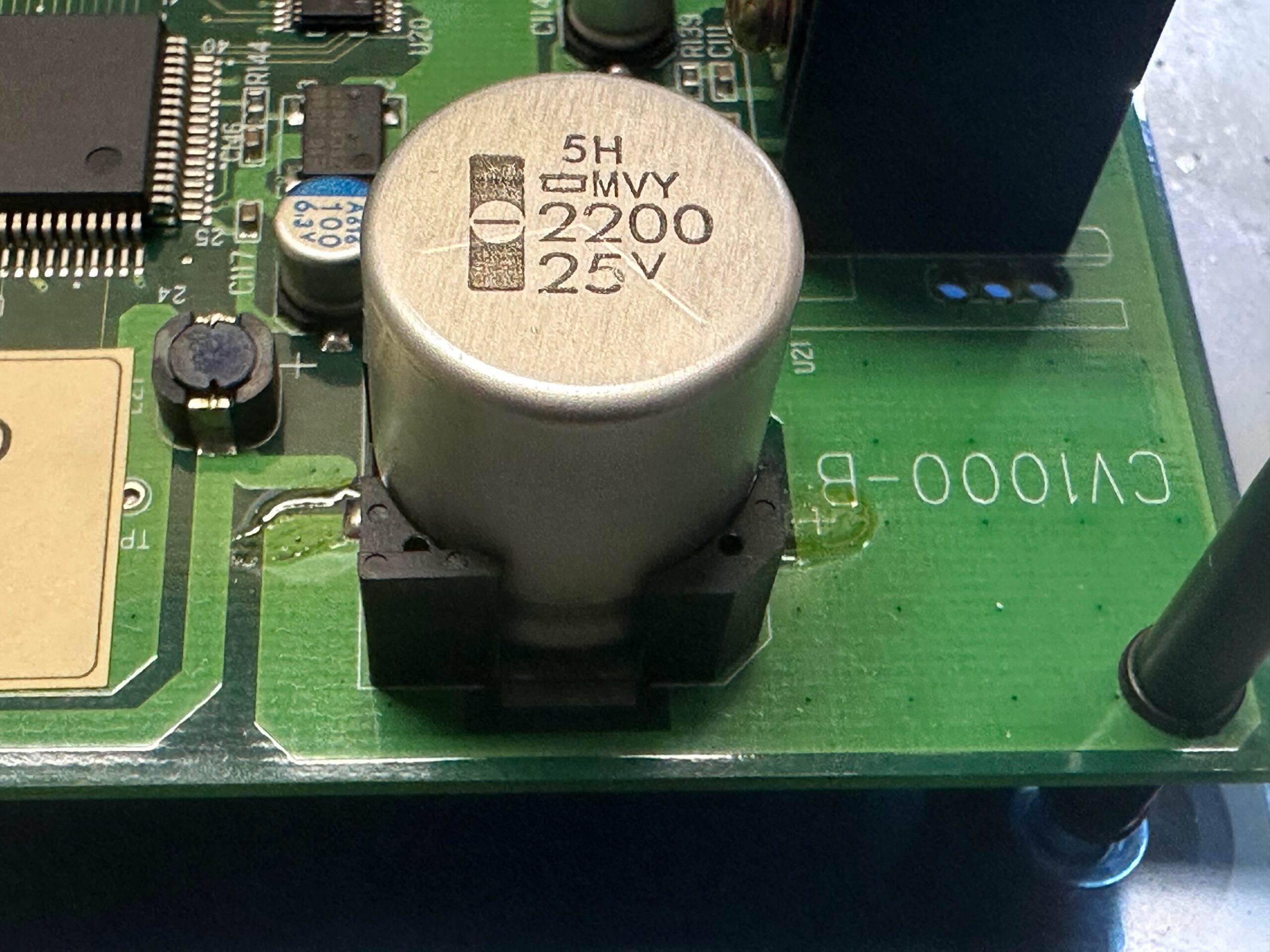
Photo Credit: ShootTheCore
The large capacitor labeled C109 in the upper-left corner that filters power for the sound amplifier often leaks. The part is rated for 2200 uF at 25 V.
Part number MAL216099606E3 has the same dimensions as the original part, while UCX1E222MNS1GS has the same footprint, but a lower height and a more supportive base. Source: System11
Color Amplifier Degradation (credit: System11)
The Red, Green and Blue color amplifiers located at U14, U15 and U16 respectively can degrade over many hours of use, resulting in a pale or incorrectly tinted display. Replacing the AD8061ARTZ color amplifier ICs (datasheet) with fresh parts should resolve the issue. Also note that the Service Menu has a brightness adjustment setting that may need to be changed afterwards.
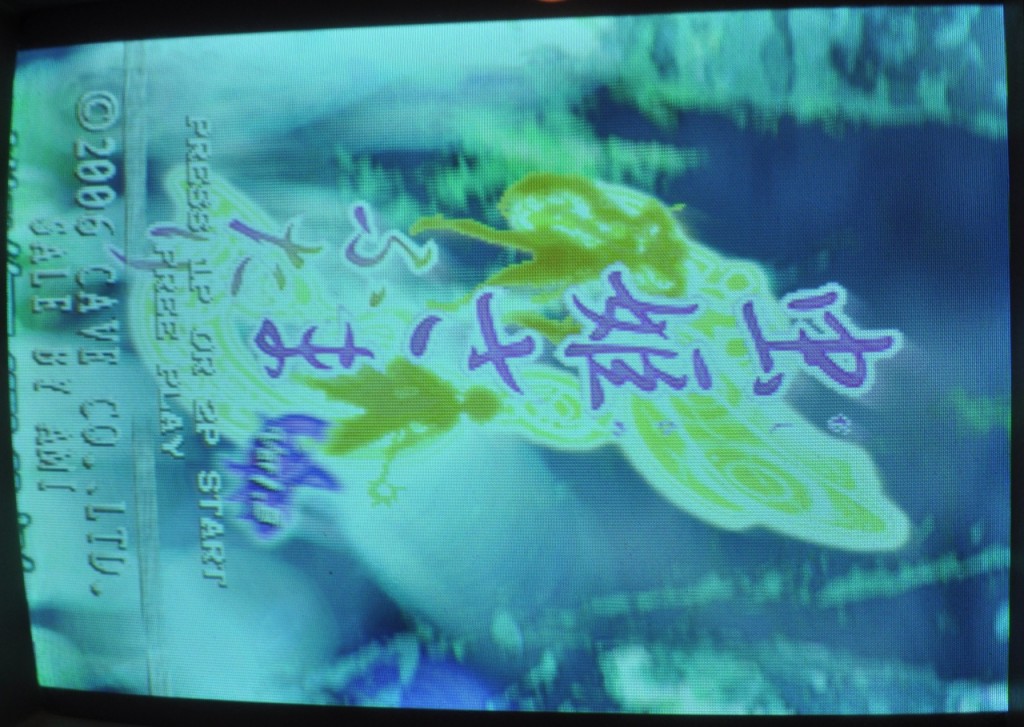
Photo Credit: System11
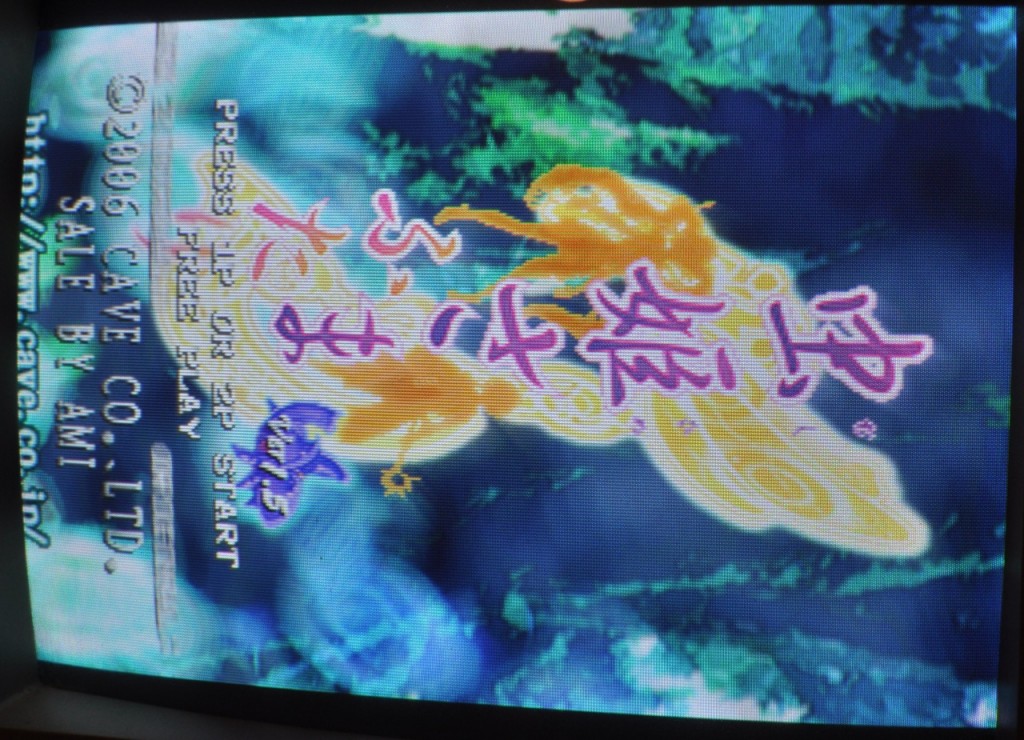
Photo Credit: System11

Missing Red and Blue Colors (credit: rtw and System11)
Switch 4 of DIP Switch block S2 will disable the Red and Green output if it is switched On. If your board has this issue, try flipping that switch Off and On a few times to clean any gunk out of the switch. If that doesn’t help, use a multimeter to check continuity across the switch – if the meter shows continuity across the switch even when it’s disabled then replace the switch block.
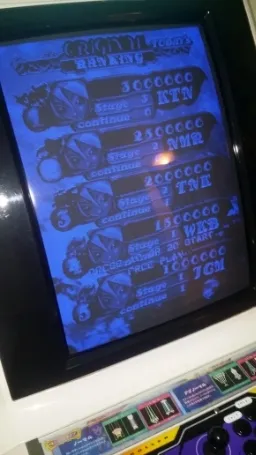
Photo Credit: K-2

VSync Deterioration (credit: TK86079)
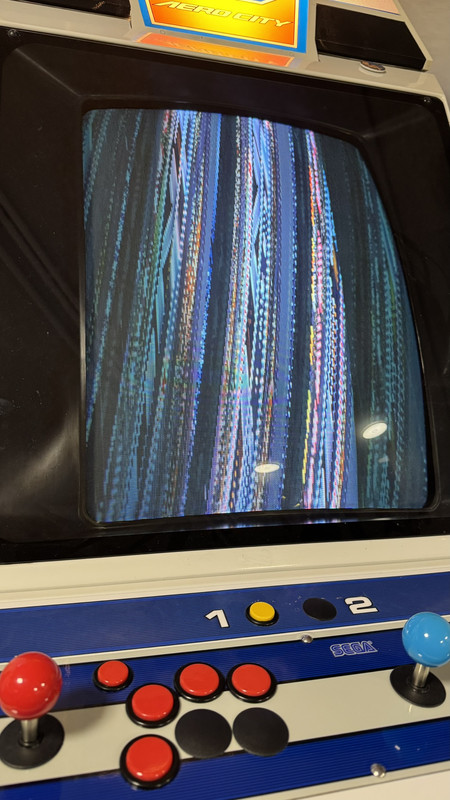
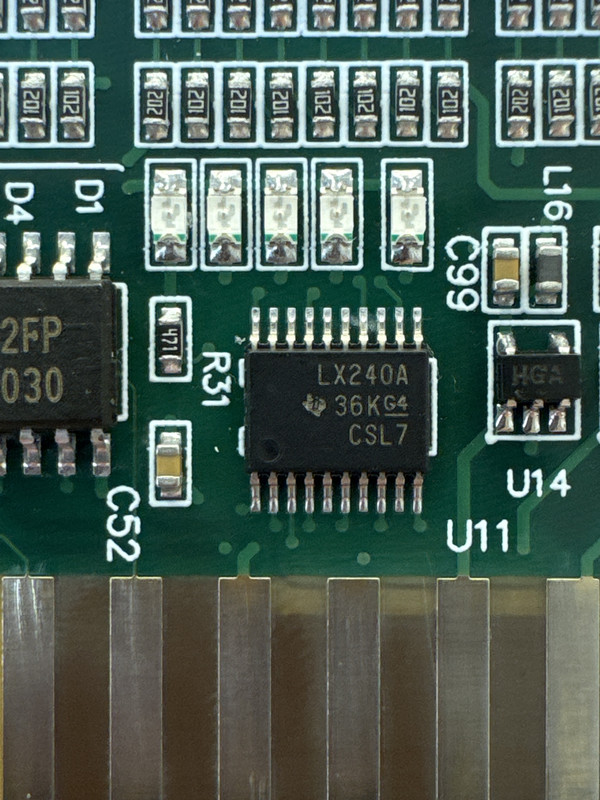
The LX240A chip located at U11 handles the VSync signal for the board. On some boards, the chip fails, causing it to get burning hot to the touch, and the game to lose VSync. Sometimes it takes a while (20 minutes from power on) to occur.
The replacement part is Texas Instruments SN74LVT240APW or SN74LVT240APWR with the TSSOP-PW packaging.
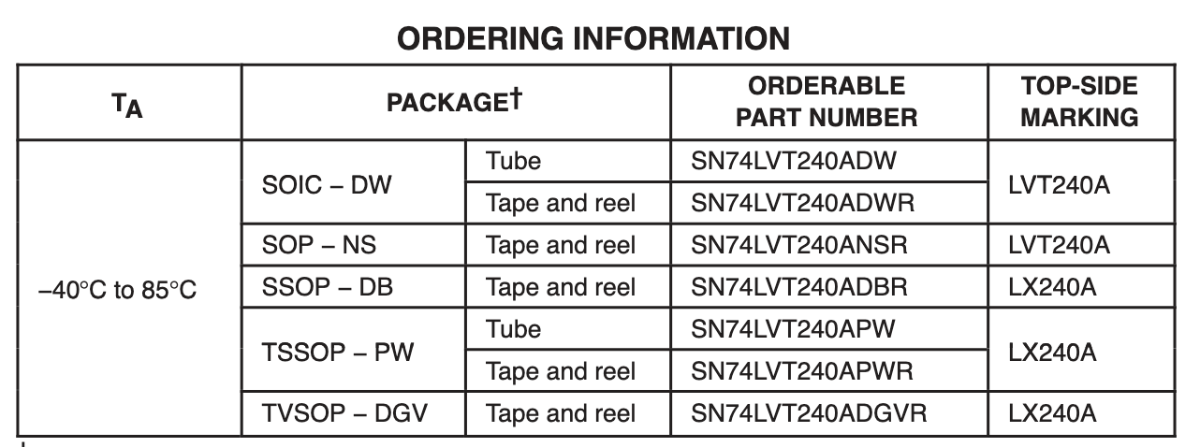
Flash Deterioration (credit: Buffi)
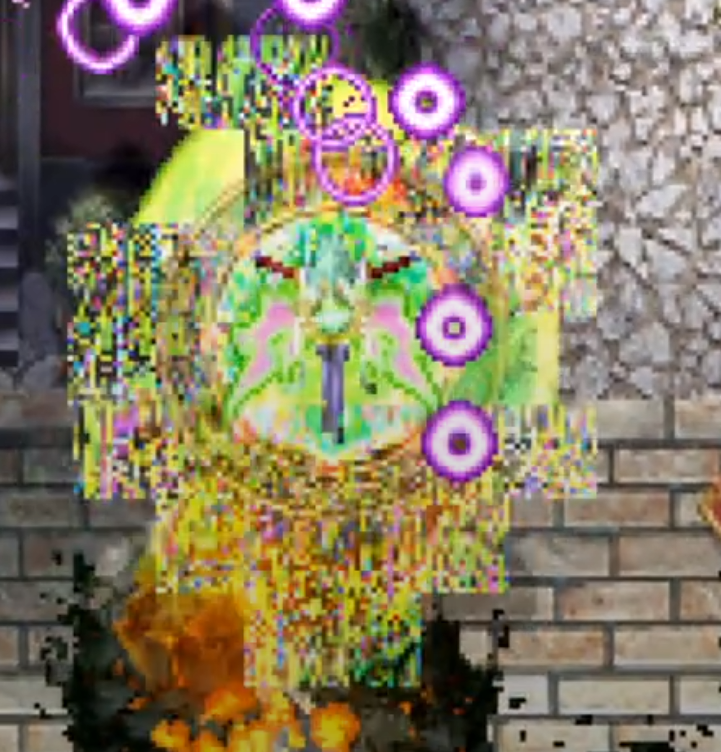
Photo Credit: buffi
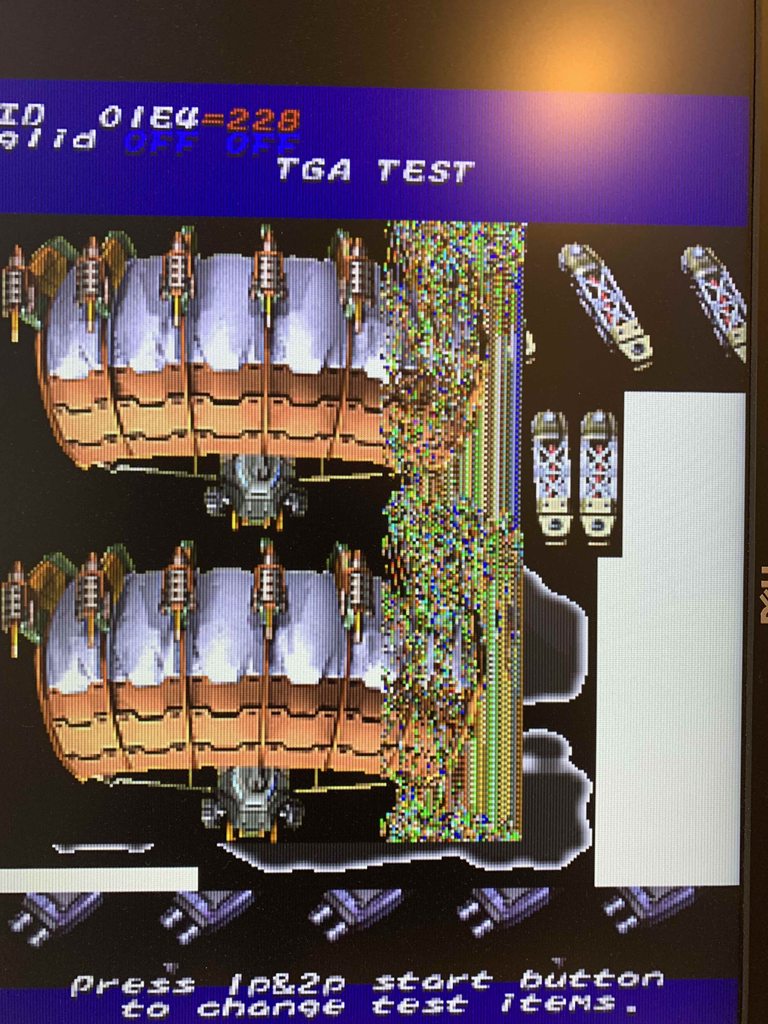
Photo Credit: EOJ
The flash chip at U2 is known to suffer from data corruption, causing glitching in the graphics. The chip model is Samsung K9F1G08U0. The CV1000 does a manufacturer check at startup to make sure the flash chip is a K9F1G08U0, and will reboot if it is not. Buffi worked out a way to remove these checks, allowing the U2 flash chip to be replaced with an equivalent from another manufacturer.
https://github.com/buffis/cv1k_research/tree/main/U2_Replacement
Alamone worked out a way to fix graphics issues from deteriorating flash by comparing CV1000 U2 dumps and generating relocated NAND blocks:
https://github.com/alamone/u2_compare
Stuck Control Inputs
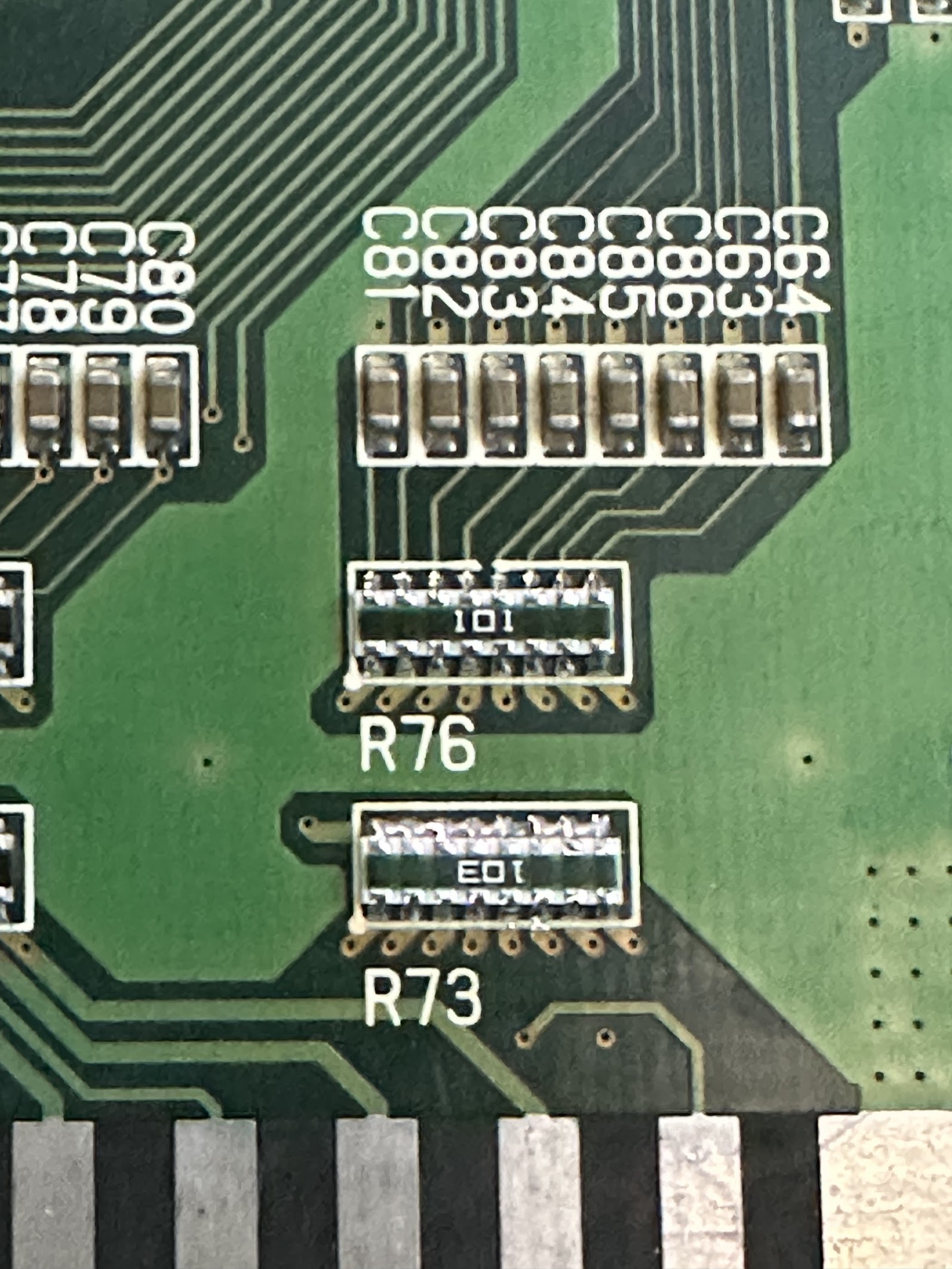
Photo Credit: ShootTheCore
CV1000 uses three sets of twin resistor banks and individual 130nF ceramic capacitors as ESD protection between each player control input and the signal pins 176-208 on the SH3 CPU. If a resistor array becomes damaged then a control input may be “stuck” – always on or always off. It’s also possible for an ESD charge to make it through the ESD protection and fry the input line on SH3 CPU – the only resolution then is to replace the entire CPU. You can check the game’s reading of the control inputs in the Service Menu.
- Resistor Array with 101 marking – replacement part number: 742C163101JP
- Resistor Array with 103 marking – replacement part number: 742C163103JP
CPU Stuck in a Boot Loop – Nothing on Screen (credit: Mike J Moffat)
If the CPU is stuck in a boot loop, the LED at L6 will pulse every second to a darker color. Ensure that the 32.768 Khz crystal resonator (it’s not an oscillator) located at X2 is intact and functioning. Measurements for the part are 4.9mm X 1.8mm .
Source: https://gamerepair.info/hardware/37_cave_cv1000
Board Does Not Boot at All (credit: Buffi)
If the EPM7032AE CPLD at location U13 fails then the board will not start up. Buffi has devised a replacement bitstream that can be programmed onto a replacement CPLD to revive the board.
https://www.arcade-projects.com/threads/u13-replacement-for-cave-cv-1000-pcb-repair.17007/
https://github.com/buffis/cv1k_research/tree/main/U13_Research
Protection Mechanisms
Game resources are stored on flash chips located at U2, U4, U23 and U24. The U2 and U4 chips can be accessed by the on-board JTAG connector, but U23 and U24 are not on the JTAG bus and can only be rewritten if the chips are physically desoldered and removed from the board.
The U2 flash is a Samsung K9F1G08U0. The games check the flash ID at boot and if it doesn’t match the expected flash model then the game reboots.
Capacitor List
| Location | Capacitance | Voltage | Type | Part No. |
| C109 | 2200 uF | 25 V | Radial | MAL216099606E3 |
| C121 | 100 uF | 6.3 V | Radial | |
| C114 | 39 uF | 16 V | Radial | |
| C122 | 39 uF | 16 V | Radial | |
| C113 | 39 uF | 16 V | Radial | |
| C131 | 100 uF | 6.3 V | Radial | |
| C132 | 100 uF | 6.3 V | Radial | |
| C133 | 39 uF | 16 V | Radial | |
| C139 | 100 uF | 6.3 V | Radial | |
| C140 | 100 uF | 6.3 V | Radial | |
| C141 | 39 uF | 16 V | Radial | |
| C95 | 1000 uF | 16 V | Radial | |
| C102 | 100 uF | 6.3 V | Radial | |
| C103 | 100 uF | 6.3 V | Radial | |
| C143 | 100 uF | 6.3 V | Radial |
ROM Details (credit: rtw World of Arcades)
| IC | Function | Silkscreen Label |
| MX 29LV160BB (Early boards) Spansion S29JL03SH70TF102 (Later boards) | Main CPU Code, FPGA bitstream source | U4 |
| Samsung K9F1G08U0M | Graphics Assets | U2 |
| MBM 29DL321 (CV-1000B) MT 46V16M16 (CV-1000D) | Sound Assets | U23 |
| MBM 29DL321 (CV-1000B) MT 46V16M16 (CV-1000D) | Sound Assets | U24 |
Source: rtw World of Arcades
Schematics & Datasheets
Original Cave schematics are unavailable for CV1000.
Buffi collected datasheets on the components used in CV1000.

Sorry, the comment form is closed at this time.